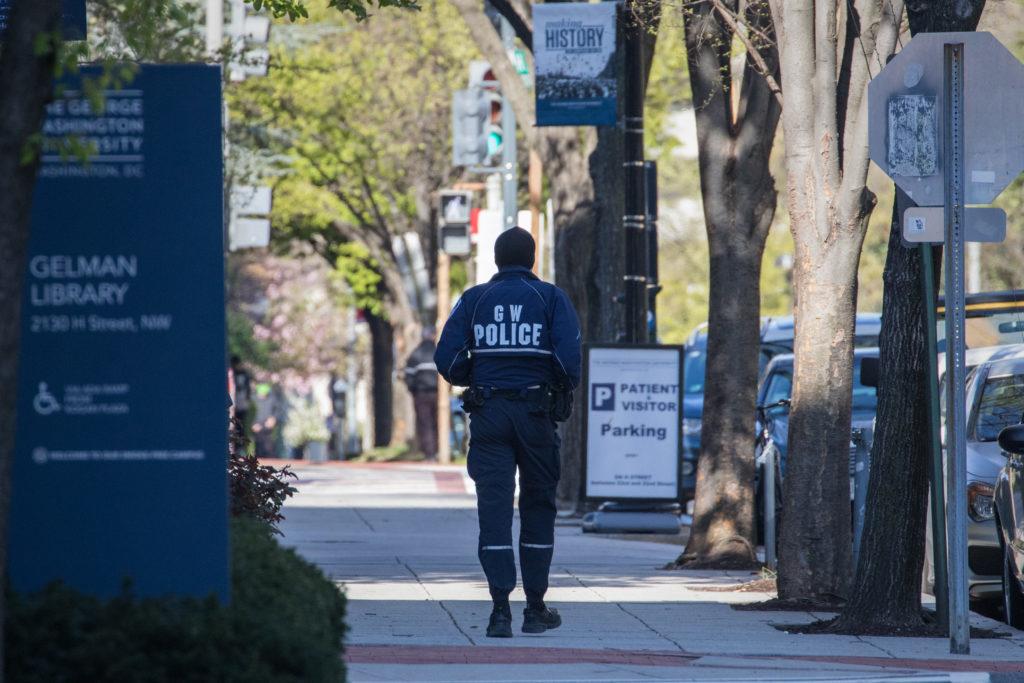A year after a University Police Department student board was proposed, Student Association leaders are still trying to recruit members.
SA Executive Vice President Thomas Falcigno proposed the advisory board last year as a way to give students an opportunity to voice concerns and suggest improvements for the department to UPD Chief RaShall Brackney. The SA now plans to start the University Police Department advisory board by the end of the semester, Falcigno said.
“Chief Brackney has done a wonderful job with working to make the department more accessible and open to student input, and we hope that a board would compliment her efforts with the department moving forward,” he said.
We want to ensure that a student board consulting with UPD is representative of the entire student body.
Brackney approved the concept last spring, but the SA has not presented specific plans to her yet, Falcigno said.
Falcigno added that he and Brackney have not decided on a final number of board members but plan to appoint 10 or fewer. He said he wants to prioritize diversity of students from different communities, races and religions when selecting who should serve on the board.
“We want to ensure that a student board consulting with UPD is representative of the entire student body,” he said.
Falcigno said the SA has struggled to find students to participate in the UPD advisory board, but he and other student leaders will find interested potential members by talking with members of student organizations. He declined to say which student groups the SA will approach to recruit members.
SA Director of Campus Operations Cole Ettingoff said in an email that although members of the advisory board will be appointed by the SA, students currently serving on the SA will not be part of the group.
“Designed as a small but diverse team to work in cooperation with UPD, the Council will both convey student feedback to UPD and help the Department build its relationship with students,” he said. “The SA and GWPD want to see students involved in making our campus a safe place to live and learn.”
The SA and GWPD want to see students involved in making our campus a safe place to live and learn.
Stephen VanWinkle, a captain at the Miami University Police Department – where they have had a police student advisory board for approximately five years – said the board there took about six months to get recommendations for student members.
While their program has no limit to the number of students that can participate, between eight and 12 students serve on the board each year.
“They’ll find that it’s kind of difficult to get 10 students,” he said about GW. “Students are super busy with their personal lives and their schoolwork.”
Members of Miami University’s program meet monthly with police officers and offer suggestions about how to solve issues, VanWinkle said. For example, the board decided officers should monitor specific intersections at particular times to prevent students from jaywalking and to alleviate traffic, he said.
VanWinkle added that boards need to maintain student interest. To keep students actively engaged in the board, VanWinkle said the MUPD adds an educational element to each meeting by bringing in visitors, like their police dog and a forensic lab technician.
Miami University’s advisory board consists of seven students, while the advisory board at Wake Forest University has three student representatives and two faculty representatives, according to their websites.
Roger Mason, an emergency response analyst and training expert, said the success of these types of boards on campuses relies on the the level of interest and commitment from students and officers.
A successful board should include students who are willing to commit the time, focus on a few specific areas of concern at a time, learn to work together as a team and get officers’ perspective on the job, Mason said.
Some groups that attempt to start police advisory boards want to tackle major issues but fail to recognize the daily duties of officers, Mason said.
“They never use the crawl, walk, run principal,” he said. “They just want to be sprinting in the Olympics and when that doesn’t work, some people say, ‘Well, these boards don’t work.’”
Elise Zaidi and Dani Grace contributed reporting.





